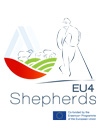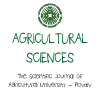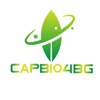Climate-smart agriculture
|
Course title: |
Climate-smart agriculture |
|
|
Course code: |
AFCSA |
|
|
ECTS: |
4 |
|
|
In-class hours |
Lectures: |
20 |
|
Laboratory work/Tutorials: |
20 |
|
|
Self-preparation hours |
Practical training: |
- |
|
Other: |
50 |
|
|
Total hours: |
90 |
|
|
Language: |
English |
|
|
Study cycle: |
BSc, MSc, PhD |
|
|
Semester: |
Winter & summer |
|
|
Faculty: |
Faculty of Agronomy |
|
|
Name of the lecturer(s): |
Chief Assist. Prof. Rumyana Georgieva, PhD |
|
|
Mode of delivery: |
Face-to-face, distance learning, combination of both |
|
|
Prerequisites: |
Prerequisites: Botany, Plant physiology, Soil science and agrochemistry, Phytopathology, Entomology, Plant science, Agrometeorology |
|
|
Learning outcomes of the course unit: |
The course “Climate-smart agriculture” . The course includes lectures and seminar discussion. |
|
|
Course contents: |
Lectures content: 1. Impact of climate change on agriculture-2h 2. The contribution of agriculture to the Greenhouse effect-2h 3. Intensive and extensive agriculture- 2h 4. Agricultural forecasting and new technologies-2h 5. FAO strategic framework 2022-2031 for mitigation of climate change and adaptation of agrifood systems-2h 6. Climate-smart agriculture- meaning, challenges, future-2h 7. Climate-resilient, profitable and nutritious crops- 2h 8. Ecosystem services and biodiversity protection-2h 9. Sustainable soil management practices and food security- 2h 10. Farm of the future and circular agriculture- 2h 11. During the seminars the students will discuss different methods, approaches, tools for achieving sustainable and climate-based agriculture using case studies provided by the lecturer. |
|
|
Recommended or required reading: |
1.Xu J, Gu B, Tian G. Review of agricultural IoT technology. ArtificialIntelligence in Agriculture. 2022 Jan;6:10-22. https://doi.org/10.1016/j.aiia... 2. Niesenbaum RA. The integration of conservation, biodiversity, andsustainability. Sustainability. 2019;11(17):46-76. https://doi.org/10.3390/su1117... 3. Gidden, M.J., Gasser, T., Grassi, G. et al. Aligning climate scenarios to emissions inventories shifts global benchmarks. Nature (2023). https://doi.org/10.1038/s41586... 4. Sandra Quijas, P.B. Biodiversity and Ecosystem Services. In Encyclopedia of Biodiversity, 2nd ed.; Elsevier Science: Amsterdam,The Netherlands, 2013 |
|
|
Planned learning activities and teaching methods: |
Lectures, presentations, tutorials, discussions |
|
|
Assessment methods and criteria: |
During the learning process the students and the lecturer will actively discuss the material. The students are working individually under the lecturer supervision. The final grade will consist of presentation of a topic determined by the supervisor. |
|
 - Events on the occasion of the 80th anniversary of AU
- Events on the occasion of the 80th anniversary of AU











